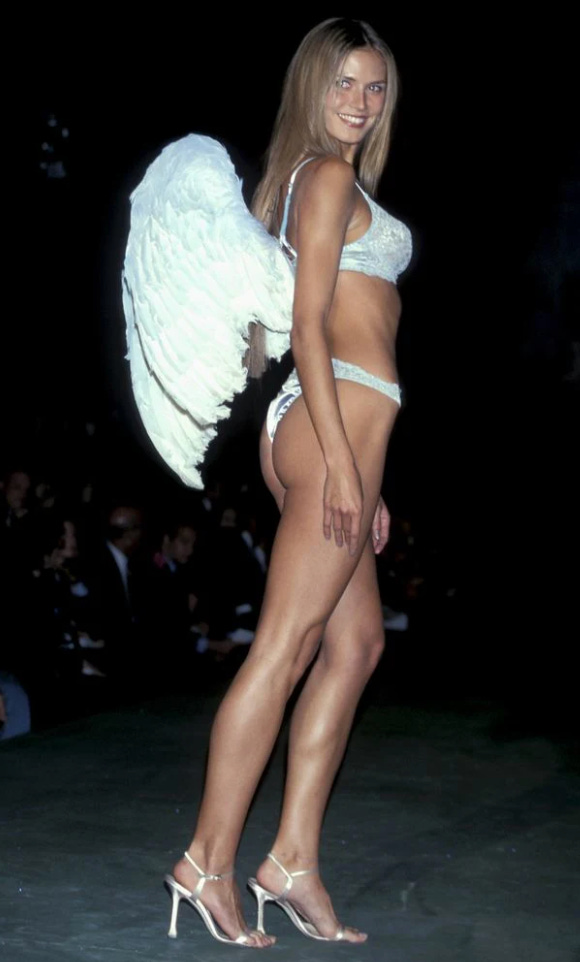Be the Change You Want to See! (A slimming one, that is).
Talking 'SlimKim', and how our obsession with thinness continues to undermine our ideals as a generation.
It’s frustrating when certain stereotypes turn out to be even partially true. Like when generations above dubbed us the superficial, snowflake generation, those of us who don’t identify with these traits felt the need to cry out “It’s not what it looks like!”, whilst being tragically aware of some of our peers’ behaviours which spoke to all things superficial and snowflake-y, and even though sensationalism and distortion allowed those behaviours to characterise an entire generation, I’ve come to learn that in many ways, it’s exactly what it looks like. In the business of discussing ‘superficiality’ in beauty politics as it impacts our generation, I was committed to doing my part, and months ago (around early September), I wrote an article about looksmaxxing constituting a new weapon for beauty terrorism, which embarrasses me slightly because by the time I’d written it, the trend had been around for about a year already.
Without exposing an instance of bad journalism for the sake of it, I say all of this to say that most of us are aware of the ways in which pro-thin rhetoric has been around for years even if its spokespeople are only just now explicitly saying what we’ve known they’ve been thinking for a while,
“My favourite thing to be is skinny, and I should be allowed to say that”
- Confessed content creator ‘SlimKim’, as if we hadn’t all realised that usernames that drew attention to that one specific, irrelevant feature weren’t as cringy as they were transparent.
The comment struck me for being a few things; embarrassing and sad sure, but certainly not surprising. Despite our self-proclaimed commitment to social justice (performative or otherwise), our collective commitment to aesthetics seems to transcend our theoretical understanding of systemic inequalities, where this is of course most easily detected in discussions surrounding beauty and body weight more specifically. Combine this obsession with our tendency to weaponize therapy speak as an excuse to be mean, and we have an explanation here. Plus, we just can’t seem to shake that nostalgia for the 90’s-2000’s heroin chic (an era in which most of us were babies).
But the result of this is that now too many young people online are willing to tread their foot on the right side of things, with our obsession with being considered attractive eroding any of the ‘core principles’ we so desperately cling onto, as we profess we’re different than the ones who came before us. If we were to take a survey from those between the ages of 18-25 asking a simple “Is fatphobia wrong?”, then of course most people would be able to conceive how fatphobia is a destructive, devastating force that stands to negatively impact young women of girls and etcetera etcetera…But unfortunately, when provided with the opportunity to spread the narrative that contradicts that whole shtick, we’re incredibly sympathetic here too.
Make no mistake, these are the same users that tried to make “Skinny-phobia” happen, revealing anecdotes nobody asked for about how “Somebody told [them] to eat a burger one time :(” who for some reason just couldn’t sit down and stay silent amid discussions surrounding fatphobia and body positivity for bigger bodies a few years ago. But past the ad campaigns for women’s skincare that featured a couple of the same plus-sized women from time to time, all of us knew the core truth;
That the pendulum would certainly swing back,
(just like it does for absolutely everything) whether it’s beauty or fashion trends, economics, the housing market, pop-cultural shifts and so on, particularly considering all of these features are mere pieces of a picture of where we are generally as a society, in the way that they are intimately connected.
We’ve found it easy enough to detect this trajectory as it occurs in men (they tend to be louder and prouder about their controversy), where the uptick in bodybuilding obsessive content, ‘masculinity’ coaches and all these damned podcasts were indicative of and facilitated the rise of red pill politics in young people. But the warning signs weren’t only there for them. If being susceptible to conservatism were strictly a gender issue, the statistics on voting would illustrate more of a clear gender divide than it did for one, and also, I wouldn’t have had to endure so many TikToks made by women and girls encouraging me to decide whether I was fox pretty or siren pretty or deer pretty.
Nevertheless, conservatism has been intricately woven into the fabric for a while now, with the deep desire to bring us ‘back to ideals’ that were never really lost being the rights’ most formidable champion. When skinny people complain about how they’ve lost their rights to gloat about how much they love being thin, and worse still, that this is a right they seem to have lost between o-so-inconvenient demands for body equality, It’s kinda like how white Republicans complain about reverse racism, as it appears to them a byproduct of affirmative action, or how liberal feminists complain about not being able to freely advocate for that 1940’s housewife lifestyle they so desperately crave.
But between the pro-ana advocates or white Republicans or fake feminists, the reality is it’s not radical to say you want to assimilate. You’re not ‘making waves’ by essentially sailing with the tide, one so unyielding that, despite all the efforts from those of us on the left, continues to persist. It isn’t an ‘unpopular opinion’ to suggest that being thin is ideal, nor are you daring to say ‘the quiet part out loud’. Instead, your rants about how your favourite thing about you is being thin will go down as nothing but a boring continuation of a narrative that never really died in the first place.
What interests me infinitely more so is the ways in which we ignore fatphobia as being a systemic and intentional tool. We tend to disassociate fatphobia with systematic oppression because our relationship with ourselves and with food is more of a personal ‘preference’. Yet somehow, we’ve seen and continue to see where ideals surrounding thinness seem to support the weight of an economy flailing from time to time, where selling skinny not only provides liquid relief but serves as a scapegoat when we begin to ask ourselves why everybody got so thin all of a sudden.
In times of recession, like that 2008 Wall St. crash/Victoria Secret Angel era, thinness was in, in a way that constructed an ideal body around what would soon become the image of survival and hunger and poverty and considering where we are now, with cost of living standards and everything, I’ll leave you to make your own deduction. As collectively the notion of affording basic groceries to stock our cupboards full appears more like a dream than reality, ‘wellness’ influencers step in to drone on about ‘gut health’ and the extensive list of health benefits that can be reaped from ‘bone broth’ and other dishes comprised of little-no ingredients.
So then starvation becomes a status symbol, and we all love those. After all, what are we without these goals to define us, guide us, and inform our efforts to eternally and exhaustively better ourselves? To me, the fact that SlimKim, as black woman was the one to perpetuate the pro-thin narrative this time only further proves to me how the prioritisation of thinness above all is about superiority or at least the illusion of it. As we acknowledge that black women are perpetually denied access to social mobility, who better to propagate these ideals in an effort to gain some of that access back? The habit of publicly putting forth the ways in which we are ‘better than’ the ‘others’ within minority groups is a tale as old as time, but I won’t forget how black female content creators denigrate themselves as they support concepts so riddled with narratives that harm any non-white woman, regardless of how they look personally.
As I look around at all the various angles of this discussion, I’m reminded of those stereotypes like ‘superficiality’ mentioned before. No matter how ‘progressive’ we deem ourselves generationally, and no matter how many times we talk about saving society, the truth, as it stands now, is that we can’t even save ourselves. No matter the theoretical basis for our politics, we can’t seem to resist old and recycled narratives as they appeal to the vainer, more ‘human’ side of us that, above all, wants to hear how much better or more special we are.
(A snowflake is born).
Asisa












a perfect, perfect piece. thank you for making so much sense (and for not being allergic to critical thinking) because the way internet culture has bred this body image compulsion is bewildering.
I was literally writing about this in my notes because I didn’t think anyone would get it😭 it’s crazy how people inflate their happiness with body image obsession but want others to feel bad for not being miserable like them💔